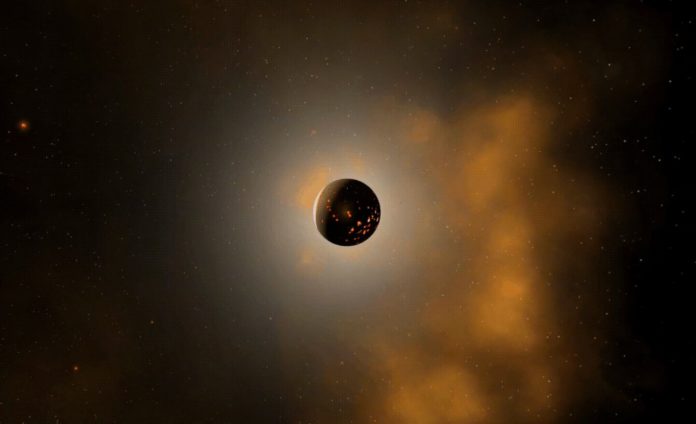Large, high-speed impacts throughout Venus’ early history, according to new modeling, could reconcile the discrepancies between Venus and its rocky sister planet, Earth.
In many ways, the two worlds are similar. They’re about the same size, mass, and density, and they’re around the same distance from the Sun. However, certain significant variations, like habitability, atmospheric composition, and plate tectonics, remain unsolved.
According to new study presented at the AGU Fall Meeting 2021, high-speed impacts may help explain why Earth is habitable while Venus is not.
“Early on, in the beginning of the Solar System, the impactors would have been immense,” says Simone Marchi, a planetary scientist at Southwest Research Institute, who will be presenting the study on Thursday, 16 December at 9:10 a.m. CST.
“If an early impactor was larger than, say, a few hundred kilometers in diameter, it could have affected the deep interior of a planet, along with its surface and atmosphere. These colossal collisions would basically affect everything about a planet.”
Impactors during Venus’ late accretionary phase, around 4.5 to 4.0 billion years ago, could have hit the planet at far faster speeds than those impacting Earth, according to recent research. Moreover, a quarter of Venus crashes would have happened at speeds of at least 30 kilometers per second (about 67,100 miles per hour).
Large, high-speed impacts on Venus cause twice as much mantle melting as impact-induced melting on Earth, shows new research. According to the findings, high-speed impactors impacting Venus at a shallow angle would have completely melted the mantle.
Marchi says if even one of these large, high-velocity impactors had impacted Venus, it would have disrupted and basically reset the planet’s evolution. Venus could have gone from a solid rocky body to a molten mess in a matter of seconds, affecting the planet’s mineralogy and physical structure. Any previous atmosphere would have been blasted away and replaced by volatile gases emitted by the melt. The formation of tectonic plates, which is a key feature of habitability, could have been influenced by a single high-speed impact.
While both Earth and Venus were certainly pounded by enormous impacts, the latter may have experienced significantly more melting and upheaval due to the rapid speed of its collisions, sending the planets on separate evolutionary paths. These early collisions had a significant impact on the habitability — or lack thereof — of both planets and the Solar System as a whole.
“These collisions were responsible for shaping the Solar System. It’s not a stretch of the imagination to say that lacking these processes, we would live in a completely different environment, and perhaps we wouldn’t be here,” Marchi adds.
“We need to ask how much of the planet we live on today was shaped by these early, violent events.”
Source: AGU
You were reading: Fast collision could explain why Venus is not like Earth
